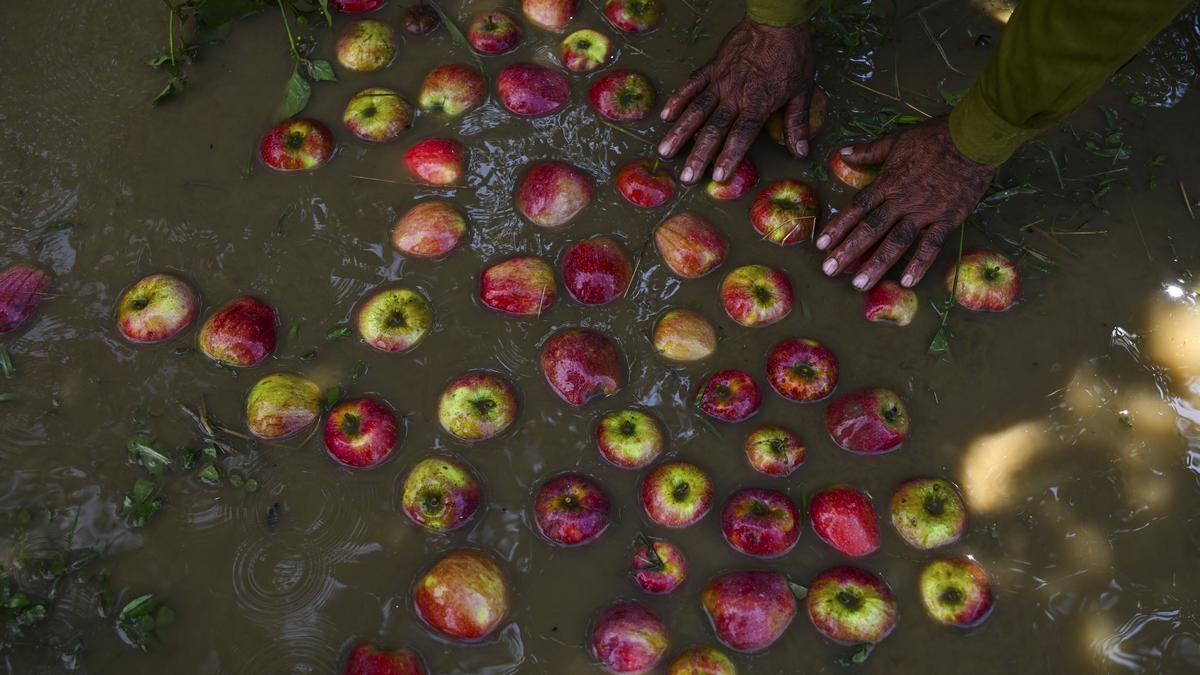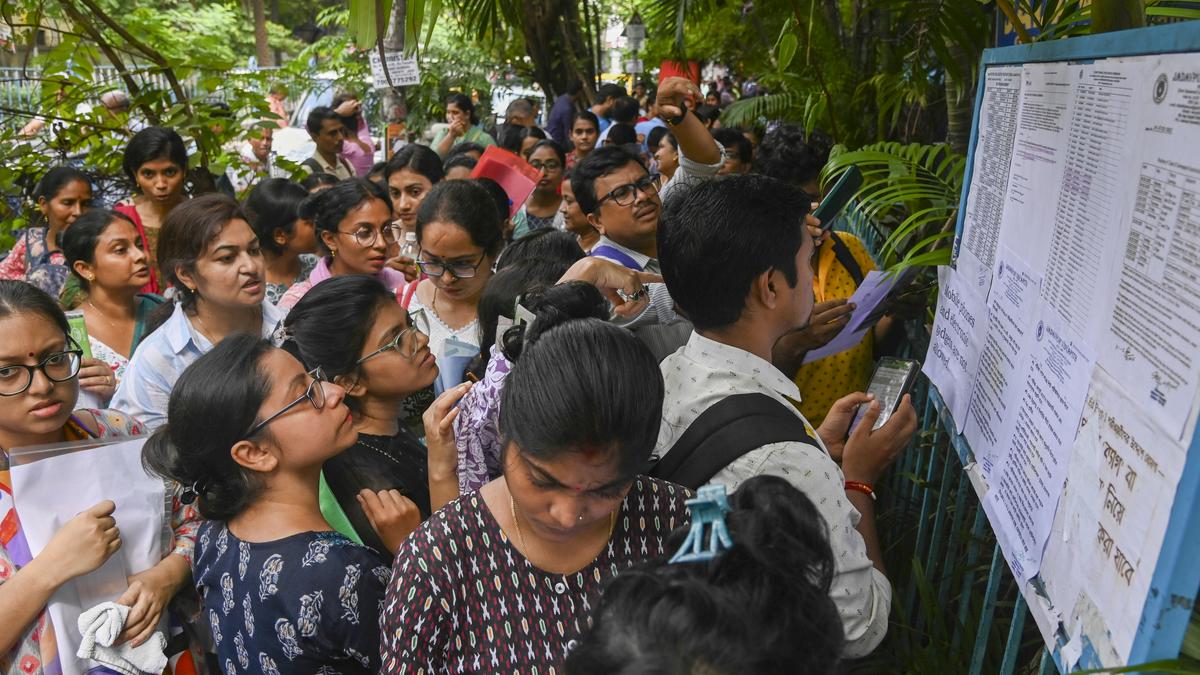Now Reading: Relentless Rains Disrupt Kashmir’s Apple Harvest
-
01
Relentless Rains Disrupt Kashmir’s Apple Harvest
Relentless Rains Disrupt Kashmir’s Apple Harvest

Quick Summary:
- Kashmir’s horticulture sector, valued at ₹10,000 crore and supporting 3.5 million people, has been severely affected by relentless rain and flooding.
- Known as the “apple bowl of India,” Kashmir produces the largest quantity of apples in the country during the late-August to october harvest season.
- Floods submerged orchards, caused premature fruit rot and drop, damaged trees’ roots due to prolonged waterlogging, and disrupted agricultural operations.
- The srinagar-Jammu National Highway was shut for nine days due to landslides, leaving thousands of trucks carrying apples stranded en route to markets across India.
- Post-harvest apple losses are estimated at ₹500 crore to ₹700 crore as many boxes spoiled during transit delays.
- Indian Railways initiated a daily goods train service from Budgam railway station starting September 13; first parcel train bound for Delhi scheduled for September 15 with eight coaches carrying apple produce in a journey lasting 23 hours.
- Fruit growers welcomed this initiative but urged more frequent trains with additional coach capacity for meaningful relief.
Indian Opinion Analysis:
The severe impact on Kashmir’s horticulture sector highlights vulnerabilities tied to extreme weather events and logistical bottlenecks in an economically critical industry that supports millions of livelihoods locally while contributing significantly to India’s fruit exports market nationally. The closure of key transportation routes such as highways exacerbates losses when perishable goods cannot reach their destinations promptly-a recurring challenge in disaster-prone areas like Kashmir Valley.
The introduction of dedicated freight trains by Indian Railways offers an essential lifeline amid crises but underscores broader infrastructure gaps needing urgent addressing-for exmaple, optimizing highway connectivity or expanding rail capacity tailored for high-demand agricultural regions like Kashmir during peak harvesting seasons.
While immediate efforts aim at damage control, sustained attention is crucial toward longer-term strategies-a combination of climate-resilient farming techniques alongside better weather forecasting technologies could help mitigate crop losses due to natural disasters going forward.
























